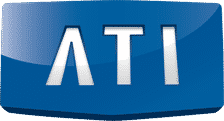
Financial aid (may be available)

Financial aid (may be available)

Financial aid (may be available)

Financial aid (may be available)

Financial aid (may be available)

No cost info

Financial aid (may be available)

Financial aid (may be available)
$23,297 total
$4,299 total
$16 total
No cost info
$1,597 total
$649 total
$600 total
No cost info
$1,597 total
$1,949 total
Are you passionate about health and wellness? Do you have a desire to help others lead a healthier lifestyle? If so, a career in applied nutrition may be the perfect fit for you. By enrolling in applied nutrition classes, you can gain the knowledge and skills needed to make a positive impact on people's lives through nutrition education and guidance.
Applied nutrition is a field that focuses on the practical application of nutrition principles to promote health and prevent disease. It involves understanding the role of nutrients in the body, analyzing dietary needs, and creating personalized nutrition plans for individuals or groups. Applied nutrition professionals work in a variety of settings, including hospitals, fitness centers, schools, and private practice.

To become a certified applied nutritionist, you will need to complete a training program that covers the essential knowledge and skills in the field. These programs can be found at vocational schools, community colleges, or online platforms like Dreambound. While the specific requirements may vary, most programs include the following components:
When searching for applied nutrition classes near you in Las Vegas, it's important to consider several factors to ensure you find the best program for your needs. Here are some things to look for:
Applied nutrition classes can be both informative and engaging. Here's what you can expect from the day-to-day experience:
After completing your applied nutrition classes, you may choose to pursue certification to enhance your professional credentials. The specific certification requirements may vary depending on the certifying organization, but generally, the process involves the following steps:
Once you have completed your applied nutrition classes and obtained certification, you will be well-prepared to pursue a career in the field. Here are some tips for finding related jobs:
After becoming an applied nutritionist, you may choose to further enhance your skills and knowledge by taking additional classes. Here are some options to consider:
If you have a passion for nutrition and a desire to help others live healthier lives, pursuing a career in applied nutrition could be a rewarding choice. By enrolling in applied nutrition classes near you in Las Vegas, you can gain the knowledge, skills, and certification needed to make a positive impact on individuals and communities. Remember to consider factors like accreditation, experienced instructors, hands-on experience, and career services when choosing a program. And don't forget to leverage resources like Dreambound to explore other vocational classes or career options. Good luck on your journey to becoming an applied nutritionist!
With Dreambound, find comprehensive guides that make starting in this field easier, each suited to a specific city. If you've planned a move or are doing research for another vocation, our other guides may be able to help.
Thinking about a potential career transition? Dreambound has detailed guides to help you with making informed decisions.
Dreambound's platform allows prospective students to find the right educational program for them through searching, filtering, and connecting with our extensive selection of career & technical education partners.
Dreambound has over 70 programs across healthcare, technology, business, and industrial trades. This includes programs such as Medical Billing, Cybersecurity, and welding.
Some of our schools offer financial aid for those who qualify. Many others offer payment plans, where you can pay the cost of class over time.
Yes, Dreambound offers many online programs. On Dreambound's search, you can filter by online, in-person, and hybrid (part online, part in-person).
Dreambound is completely free for you to use! We are supported by schools and organizations who pay to advertise on our website, so we can offer all of our career resources for free.